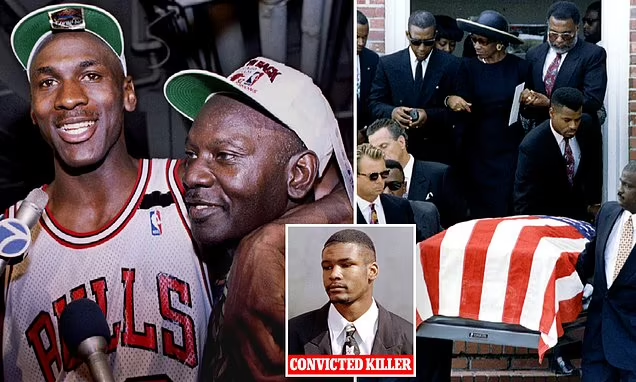
The tragic murder of James Jordan, Michael Jordan’s father, is once again at the forefront of discussion due to startling new evidence. The case, which has lingered in public consciousness since 1993, raises unsettling questions about the investigation and the individuals convicted of the crime. When James Jordan’s body was discovered in the waters of Gum Swamp on August 3, 1993, it was in such a state of decomposition that he was initially labeled a ‘John Doe.’ The coroner’s decision to cremate him only added to the complexities surrounding the case.
The circumstances of James Jordan’s death are still puzzling. After pulling over for a nap while driving home from a funeral, he was tragically shot during a botched robbery. The subsequent investigation led to the arrest of two teenagers, Daniel Green and Larry Demery, who were convicted based largely on Demery’s testimony that implicated Green as the shooter. Despite their convictions, lingering doubts about the validity of the evidence and the testimonies remain, particularly concerning the potential mishandling of crucial evidence.
Recently, a significant development emerged when the judge from the original trial, Gregory Weeks, expressed regret over not disclosing vital evidence regarding the blood found in Jordan’s car. This new revelation casts further doubt on the integrity of the original trial and raises the possibility of wrongful conviction for Green, who has always maintained his innocence. His legal team is now advocating for a re-examination of the evidence, hoping to clear his name after nearly three decades behind bars.
The emotional impact of James Jordan’s death on Michael Jordan was profound. Following his father’s murder, the NBA star stepped away from basketball, feeling that the loss emphasized life’s fragility. He pursued a brief career in baseball, inspired in part by his father’s wishes. Throughout his journey, Michael Jordan has often reflected on the void left by his father’s absence, stating that he thinks about him daily.
As new evidence comes to light and the debate over the validity of the convictions continues, the story of James Jordan’s murder remains a haunting chapter in sports history. Michael Jordan’s struggle with grief and the quest for justice for his father’s murder may soon take an unexpected turn, prompting both renewed scrutiny of the original investigation and a deeper conversation about the implications of wrongful con
victions.




